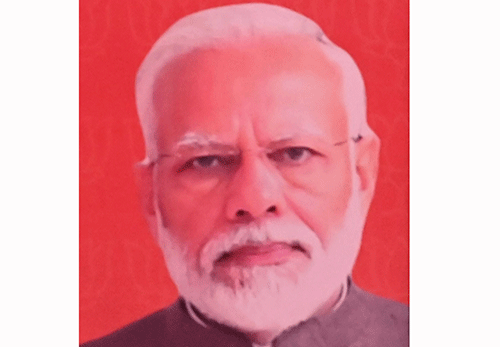Mumbai – Indian Prime Minister Narendra Modi has presided over world-beating economic growth, but chronically high unemployment rates played a key role in his surprise electoral setback this week.
Modi has overseen India’s ascent to become the world’s fastest-growing major economy, and its fifth-largest, but the world’s most populous country has a jobs crisis to match.
“The underlying economic distress of people in the unorganised sector impacted the election result,” said economist Arun Kumar, who added that Modi’s Hindu-nationalist appeal to voters fell short against the reality of money in the pocket.
He is readying for a third term in power, this time leading a coalition government after failing to secure an outright majority for the first time since sweeping to power a decade ago.
“Mr Modi’s trump card was his emotional pitch to the Hindus… trying to overcome the negativity around unemployment, inequality, price rises,” Kumar said.
“That failed because people have reacted to their economic situation, their real issues.”
IT services are the most visible part of India’s modern economy and historically one of its biggest white-collar job-creators, driving the expansion of the middle class.
However, a slowdown in the sector has seen hundreds of thousands of new graduates struggle to find work. The International Labour Organisation, for example, estimated that 29% of India’s young university graduates were unemployed in 2022.
Modi’s government has drastically boosted infrastructure spending, and convinced global giants such as Apple to make more of its iPhones in India.
But that has not translated into enough jobs.
“There is no doubt that India is seeing a job crisis at home,” said development economist Santosh Mehrotra. “The country needs to create 10 million to 12 million non-farm jobs to absorb both people entering the economy, and its surplus agricultural workers,” Mehrotra said.
“It is currently creating far less than this.”
The World Bank said this year that India, like other South Asian nations, was “not creating enough jobs to keep pace with its rapidly increasing working-age population”.
Janakiraman Muthuvel is one them.
The 22-year-old dreams of a job at one of India’s giant software outsourcing firms, and his parents spent most of their savings on fees at a second-tier engineering college outside the tech capital Bengaluru.
“Everyone is scared,” Muthuvel said. “Many of the big companies that usually come for placement gave my college a miss.”
With tens of millions of people joining the workforce every year, the challenge will only get bigger.
Muthuvel backed Modi’s Bharatiya Janata Party (BJP), but frustrations are mounting.
“Me and my family voted for BJP because we believe Modi is best-suited to solving this country’s problems,” he said. “But we are waiting for a better future.”
Muthuvel hopes for a job to pay family debts and help him get married. He has an interview next week for a back-office job that handles technical assistance calls for a British bank.
If he gets it, the salary is just over US$200 a month.
India’s tech sector is also falling into a rut.
The IT services industry, which employs more than five million people, has struggled after slowdowns in Western markets.
The total headcount of IT giants TCS, Infosys and Wipro declined by nearly 64 000 people in the year to March, according to an AFP analysis of their annual financial results.
The industry continues to add new employees, but the employment engine has started to sputter.
Only 60 000 net jobs were created in the last financial year, according to data from industry body Nasscom, a sharp drop from the 290 000 added in the 2022-23 fiscal year.
“If your revenue is growing only two to three percent, you don’t have the space to add headcount”, said Sangeeta Gupta, chief strategy officer at Nasscom, holding out hope for a “ramp-up” next year.
The global tech slowdown is also being felt farther away at India’s elite engineering schools.
“Placements are less this year so far,” said Rajib Maity, career development centre head at IIT Kharagpur, a college whose most prominent alumni include Google CEO Sundar Pichai.
One student at an Indian Institute of Technology (IIT) school, who asked not to be identified because it would hinder their job prospects, said “people aren’t getting jobs thrown in their laps anymore”.
“We’ve had no choice but to become more realistic on salaries.”
-Nampa/AFP


